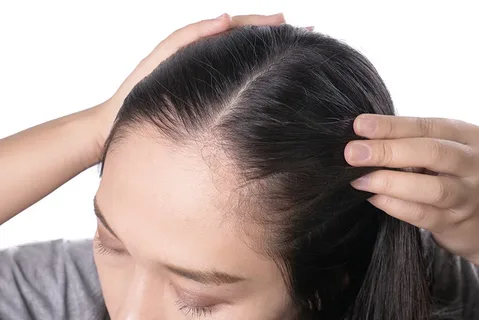We all lose some hair occasionally during a shower or when we brush it, but excessive loss can be alarming. It is a sign of an underlying issue and should not be ignored. Hair loss is a psychological stress for women and can affect their self-esteem, body image, and social lives. A person’s hair is a central feature of their identity and self-image. For a woman, it is her crowning glory, which she believes adds to her feminity and attractiveness. Hence, any sign of hair loss can be very distressing to her. Hair loss can have severe psychological consequences, leading to personal, social, and work-related problems.
The Psychological Impact
Hair loss can have a dramatic psychological impact. It can cause a significant decrease in self-esteem for both men and women. It can also cause severe anxiety and stress, affecting your daily quality of life. The emotional suffering caused by hair loss can also lead to personal and professional problems. In some cases, hair loss symptoms can even be worse than those experienced by people with severe and chronic life-threatening diseases.
For women, losing their hair can be particularly traumatic as they view it as a sign of early aging and a reduction in their femininity. In addition, they are also worried about losing their sexual attractiveness. It is not uncommon for women to experience depression because of this issue.
Losing eyebrows and eyelashes can also be a significant problem for some patients because they define the face. Some male patients even feel that losing body hair makes them less masculine.
The expression “bad hair day” is a testament to the psychological importance of hair. Having healthy, complete, and voluminous hair communicates good health, charm, beauty, class, and power. A person’s hair can also describe their culture and social affiliations. Monks typically shave their heads while orthodox Jewish men wear traditional sidelocks, and rockers often have long, unkempt hair as a sign of rebellion. You probably have hair loss and should consult a dermatologist if your part is getting wider, you have bald spots, or you’re losing more than 125 hairs daily. There are various forms of hair loss and numerous potential causes. Even if there isn’t much you can do to stop hair loss, you can benefit from therapy if you visit a dermatologist quickly! So check now how does Finasteride work for hair loss to experience remarkable result.
Stress
Stress is linked to various issues, from hair loss to heart disease. It can also trigger a host of other beauty and health problems, from dandruff to adult acne. This is because hormones get thrown out of balance by significant emotional stress, which can affect the body internally and externally.
Significant stress can push large hair follicles into a telogen effluvium resting phase. This causes an overall thinning of the scalp, especially at the front and back. It can also cause clumps of hair to fall out when washed or brushed. This type of hair loss is temporary, and if you can reduce your stress levels, your hair growth will return.
Scientists have discovered why significant stress can cause hair loss, which could help to improve treatment options. A study published in 2021 showed that a specific stress hormone impairs stem cells required to grow hair by inhibiting an enzyme named Gas6.
If you are experiencing hair loss due to significant stress, it is essential to seek professional advice as soon as possible. Your doctor can recommend a healthy diet, a stress management plan, and other treatments to support your health. They may also recommend a psychotherapist or psychiatrist to work through the root causes of your stress and prescribe medication that can address symptoms like depression or anxiety, which can also contribute to hair loss.
Diet
Your diet is vital to overall health and well-being. A poor diet of fried foods and sugar may increase inflammation, restrict blood flow to the hair follicles, and contribute to male-pattern baldness and female-pattern alopecia. Diets rich in fruits and vegetables, whole grains, and fortified dairy products are essential for healthy hair. Specific vitamins and minerals, like vitamins B6 and B12 and folic acid, are also vital to hair health, including for vegans and vegetarians.
Genetics
As you might expect, genetics play an essential role in hair loss. Men can inherit genetic traits from their fathers, and women can pass them on from their mothers. Research also shows that genetics can influence how telogen effluvium is expressed, a condition in which hair falls out as a response to stress, hormonal changes, or certain medications.
A common cause of inherited baldness is dihydrotestosterone (DHT), an androgen produced with testosterone that shrinks and destroys hair follicles. Luckily, some treatments can prevent hereditary hair loss by blocking DHT. These include finasteride, which has been shown to slow down the effects of ageing and other factors that can contribute to hair loss. This includes stress, diet, and other medications like chemotherapy drugs or those used to treat high blood pressure.
